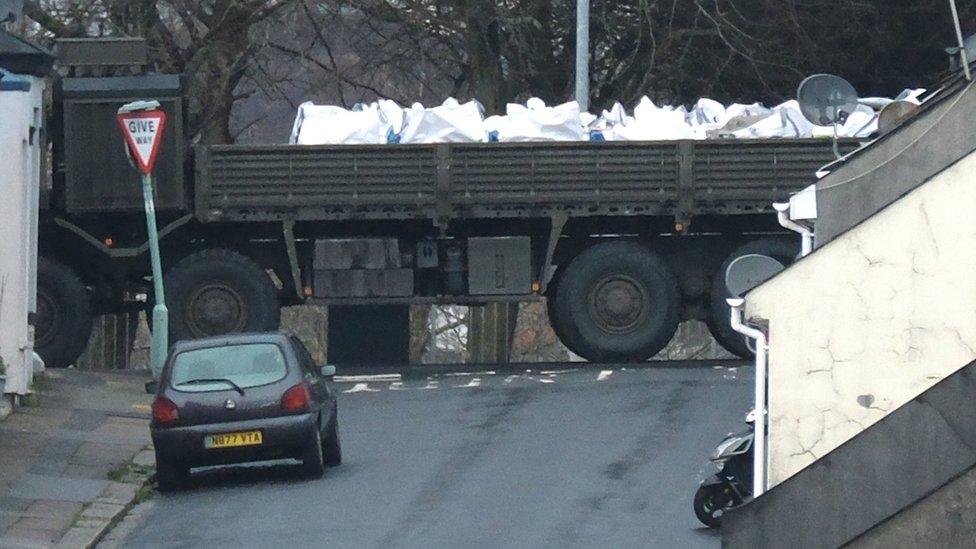Plymouth unexploded WW2 bomb: Cordon to be extended
- Published
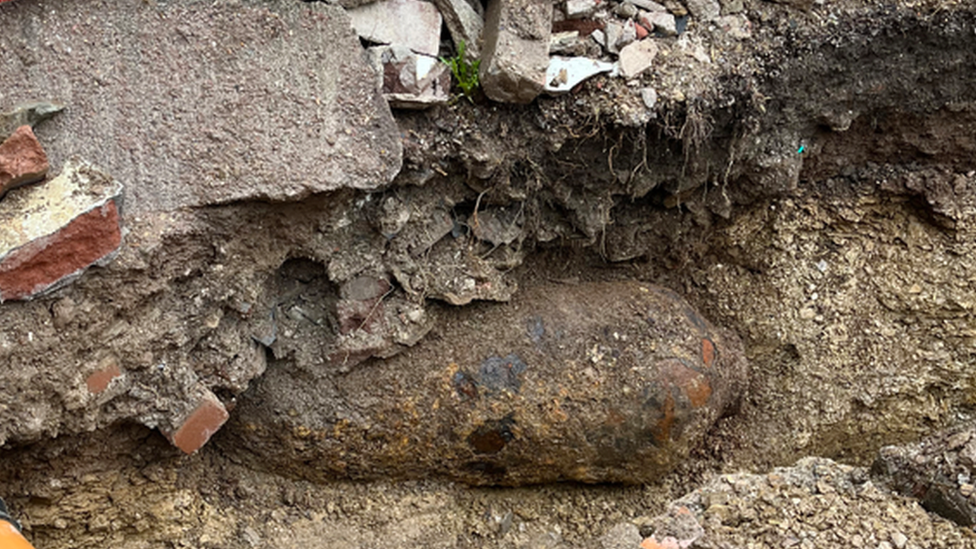
Various agencies are working together in Keyham to make the scene safe
The cordon around the unexploded World War Two bomb in Plymouth is set to be expanded from 09:00 GMT on Thursday, police have confirmed.
The exclusion zone will widen from 200m (656ft) to 309m (1,014ft), Ch Supt Matt Longman said.
Police said those who had already been evacuated would be allowed to go home and collect any essentials until 09:00.
Ch Supt Longman said people should be prepared to be away from their homes for 36 hours.
Those who are going to be affected by the widening of the cordon would be notified, he added.
He said people should "prepare as early as they can" to leave the area - and if they were not sure if they were affected by the expansion of the cordon, the police force would make sure the relevant information was available on the Plymouth City Council website.
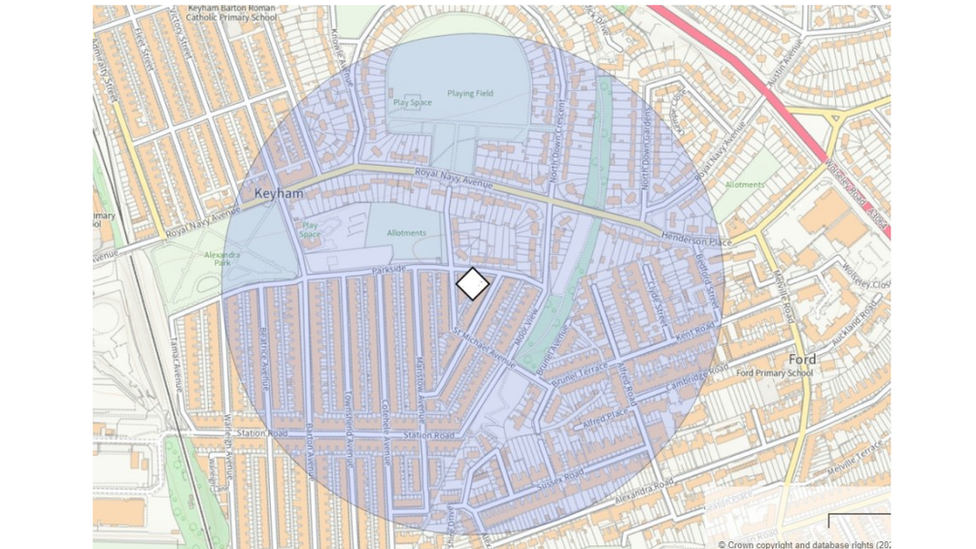
The cordon will be extended from 09:00 on Thursday
Teams from Plymouth City Council and partner agencies will be in the area to knock on the doors of the properties affected by the extended cordon from 08:00 on Thursday.
The council is advising residents who have homes within the new cordon to take enough clothes and any medical prescriptions or equipment for the next couple of days.
The Life Centre will be open to accommodate people as well, the council said.
Lt Col Rob Swan, commanding officer of the 11 Explosive Ordnance Disposal & Search Regiment, confirmed the bomb was a "German air-drop munition from World War Two".
He said experts were still working to understand the exact make-up of the bomb, and to decide the best course of action to take to make it safe.
Keyham resident Antonio de Sousa said he, his three children and his mother were among hundreds evacuated.
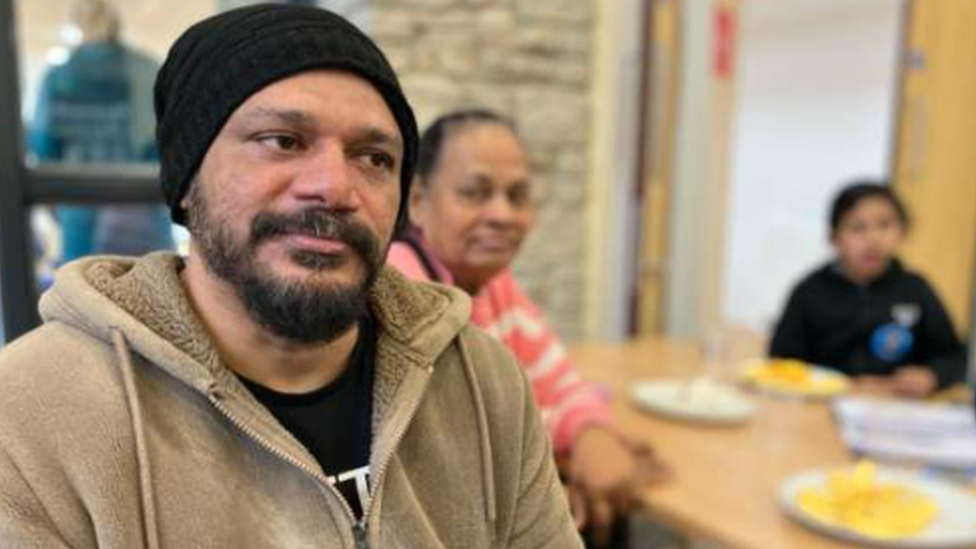
Keyham resident Antonio de Sousa was evacuated with his family
He said: "All we could see was police on the street telling people to leave our home, I've never had an experience like this before."
Mr de Sousa said he hoped he and his family would be home soon.
Ray Baker, 66, who lives close to where the device was found, said he had nowhere else to go - so decided to sleep at home on Tuesday night despite advice to leave.
He added: "A policeman saw me and my wife in the garden with the dog this morning and said 'what are you still doing here?' The police said we were a hundred metres away from the device."
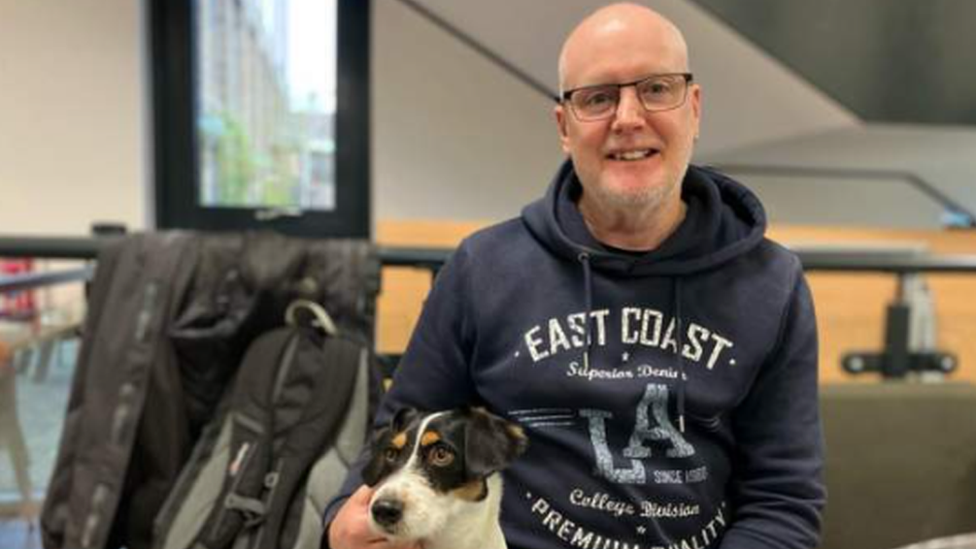
Ray Baker and his wife were offered a hotel room to stay in by Plymouth City Council
He said he went to the Beacon Centre rest centre on Wednesday and Plymouth City Council said it would find the couple somewhere to stay the night.
Plymouth City Council said the Life Centre, in Central Park, would be open on Thursday from 07:00 - and said there would be staff there to offer support to people.
There will also be a free shuttle bus on Thursday, to be provided by Plymouth Citybus, which will take people to the Life Centre if they do not have their own transport.
Buses will pick up at Wolseley Road, Saltash Road, and St Levan Road every 15 minutes, the council said.

Follow BBC Devon and BBC Cornwall on X (formerly Twitter), external, Facebook, external and Instagram, external. Send your story ideas to spotlight@bbc.co.uk, external.
Related topics
- Published21 February 2024
